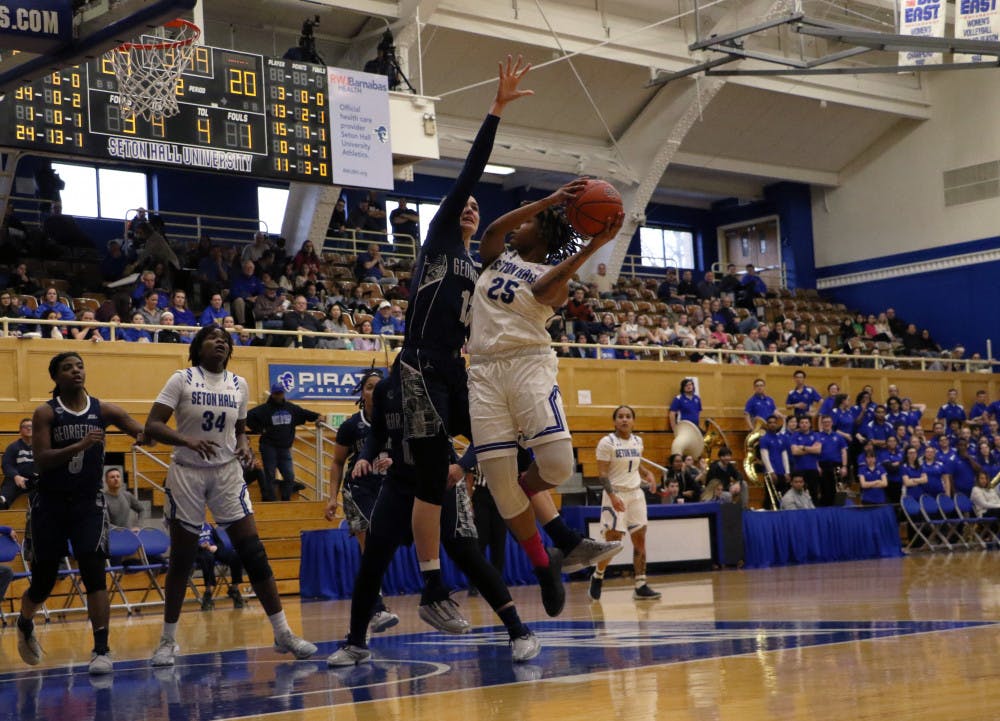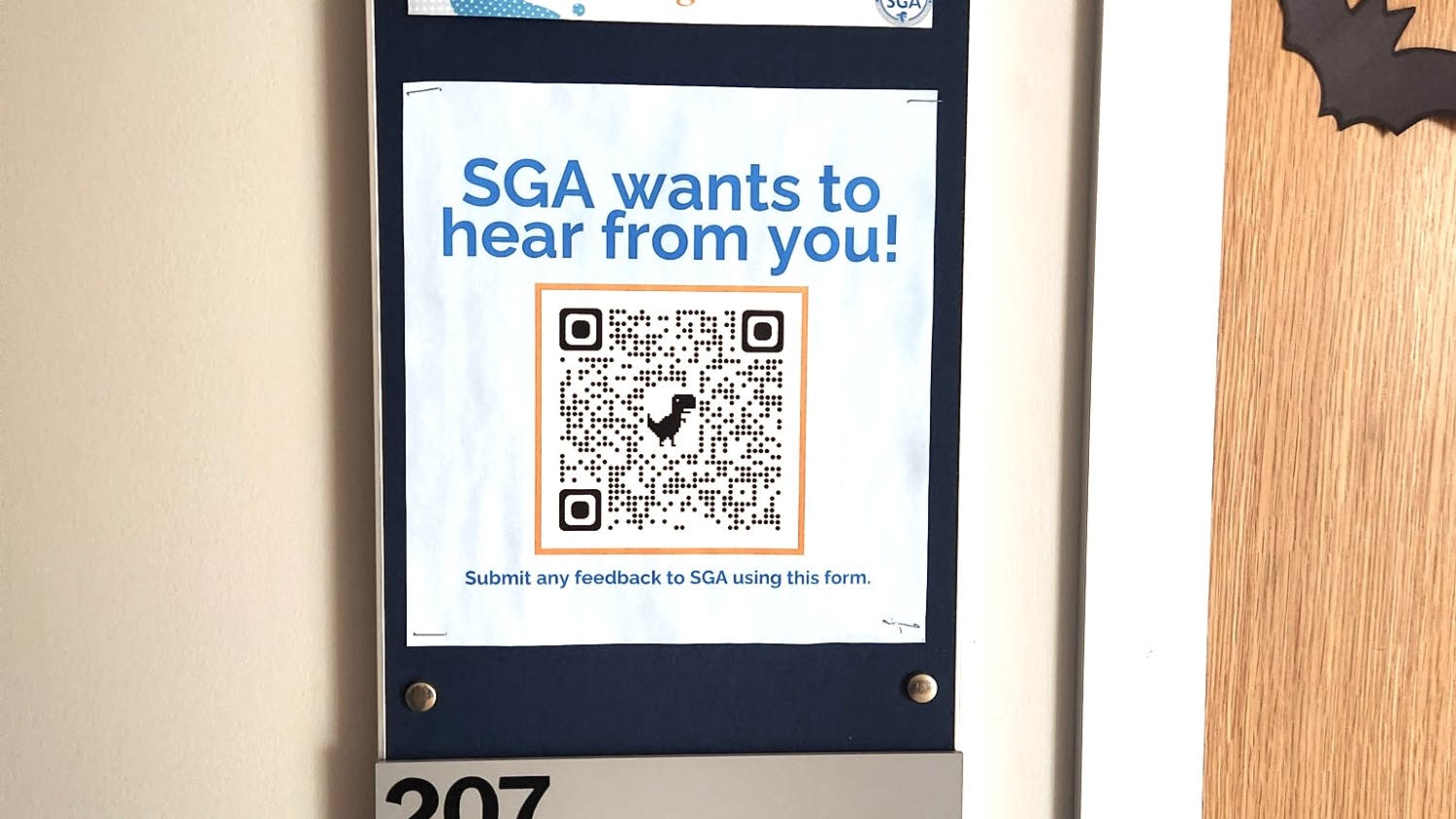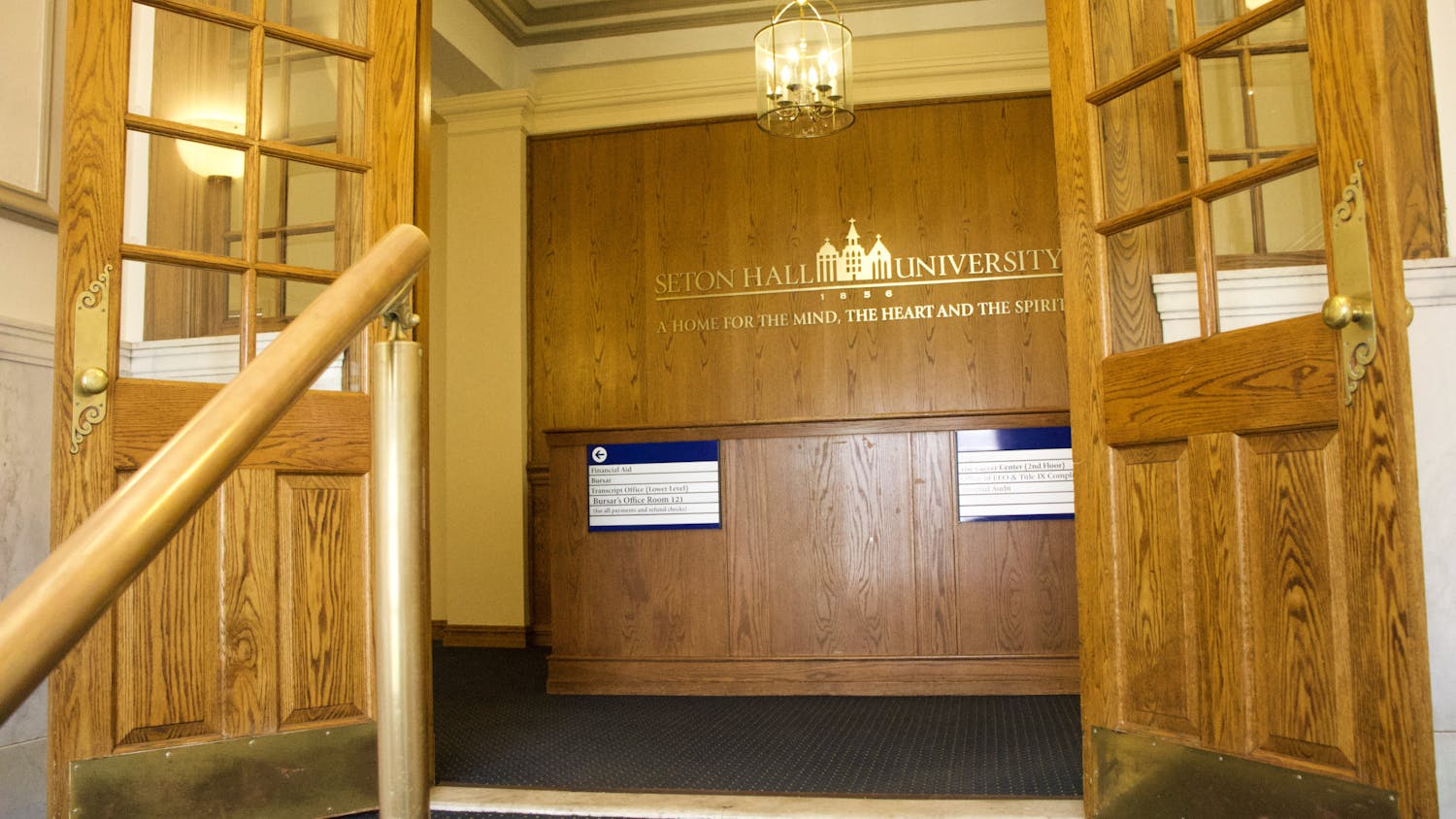The New Jersey State Nursing Association will hold a town meeting, which Seton Hall nursing majors are invited to attend addressing New Jersey health care access issues in the Chancellor's Suite on Sept. 27.
The NJSNA has formed a steering group for this event to help bring awareness to Advanced Practice Nurses, Registered Nurses and citizens about how New Jersey is fulfilling the responsibilities the Institute of Medicine asks of health care professionals.
According to their website, the IOM "is an independent, nonprofit organization that works outside of government to provide unbiased and authoritative advice to decision makers and the public."
IOM is committed to answering questions about health care and educating the public on these topics.
The town hall meeting is just one of many informative sessions the IOM inspires, also according to their website.
Sophomore nursing student Emily Rosenberger said the meeting has a full agenda that has got many students excited.
"It's a great opportunity to learn more about health care, which we have been addressing in many of our courses this semester," Rosenberger said.
Sophomore Isabella Sacco said she is also excited about the meeting.
"I can't wait to get more involved with my nursing community," Sacco said.
The agenda that has gotten several nursing students excited mainly addresses the many restrictions placed on APNs that many practitioners wish were abolished, according to IOM.
APNs are usually restricted to collaborate with physicians in order to write prescriptions, and pay 10 percent of their income to these physicians who rarely see the patients.
In addition, some APNs are unable to even find a willing collaborative physician and are forced to practice outside of N.J., according to IOM.
Many forms of health care insurance do not allow APNs to be designated as primary health care providers, including Medicade and Medicare.
Some students were surprised when shown these facts.
"I want to someday be an APN, so attending this meeting will hopefully provide more insights that I was unaware of," sophomore nursing student Alicia Lyzenga said.
APNs can be nurse practitioners, clinical nurse specialists, nurse anesthetists or nurse midwives.
They just may not have had the same formal education medical doctors have had.
"They often have more hands-on experience [but]don't get the same respect," Lyzenga said.
Problems like these are to be addressed in next Thursday's meeting to help NJSNA meet their 2012-13 goal.
The goal is nurses should be able to use their education to the fullest extent and that "scope-of-practice restrictions" like the ones listed above should be removed for all nurses, not just APNs, according to Seton Hall's website.
In regards to education, IOM aims to include the wealth of information APNs gain informally, outside of the classroom, when taking part in hand on work.
Although Seton Hall is just the meeting place for the town hall, the agenda intends to provide educational insights regarding the health care access in New Jersey to not only APNs and RNs, but to New Jersey citizens in general.
"Opportunities like these are why I chose Seton Hall for my nursing degree" Rosenberger said.
All students are welcome to come and admittance is free, but registration is required. The meeting runs from 1 p.m. to 3 p.m.
Victoria Plates can be reached at victoria,plates@student.shu.edu.





